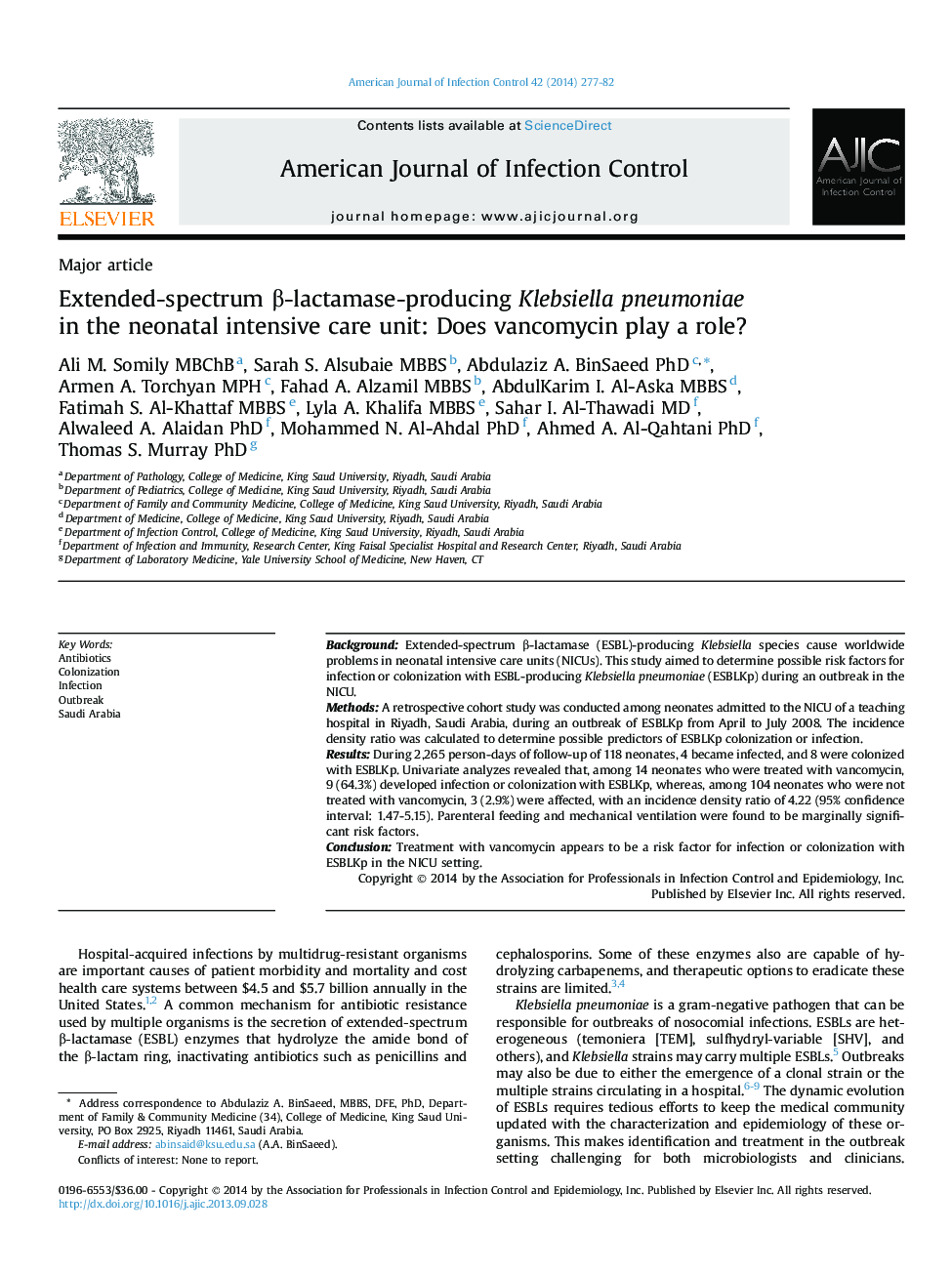| Article ID | Journal | Published Year | Pages | File Type |
|---|---|---|---|---|
| 2637662 | American Journal of Infection Control | 2014 | 6 Pages |
BackgroundExtended-spectrum β-lactamase (ESBL)-producing Klebsiella species cause worldwide problems in neonatal intensive care units (NICUs). This study aimed to determine possible risk factors for infection or colonization with ESBL-producing Klebsiella pneumoniae (ESBLKp) during an outbreak in the NICU.MethodsA retrospective cohort study was conducted among neonates admitted to the NICU of a teaching hospital in Riyadh, Saudi Arabia, during an outbreak of ESBLKp from April to July 2008. The incidence density ratio was calculated to determine possible predictors of ESBLKp colonization or infection.ResultsDuring 2,265 person-days of follow-up of 118 neonates, 4 became infected, and 8 were colonized with ESBLKp. Univariate analyzes revealed that, among 14 neonates who were treated with vancomycin, 9 (64.3%) developed infection or colonization with ESBLKp, whereas, among 104 neonates who were not treated with vancomycin, 3 (2.9%) were affected, with an incidence density ratio of 4.22 (95% confidence interval: 1.47-5.15). Parenteral feeding and mechanical ventilation were found to be marginally significant risk factors.ConclusionTreatment with vancomycin appears to be a risk factor for infection or colonization with ESBLKp in the NICU setting.
